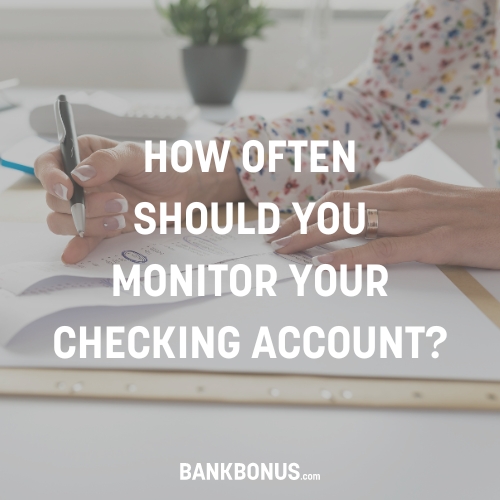From spy novels to hacker flicks, Swiss bank accounts have a reputation as an exotic haven where those with money to hide go to stash their cash.
While there is a sliver of truth to this, in reality, things are far different than stories and urban legends may lead you to believe.
With the banking and financial sectors being the fastest moving in the world and a source for all other sectors to function, rules keep changing all the time. Switzerland is no exception.
In this article, we’ll look at the historical events that transpired throughout time, which led to this belief that Swiss bank accounts are used to hide money.
We will be uncovering secrets, scandals, and the role that the central bank of Switzerland plays in stabilizing the economy.
We’ll also look at why people are still opening bank accounts in Switzerland, the pros and cons, and things you need to look out for, should you decide to open an offshore account here.
History Of The Swiss Bank Account
In 1934, the Swiss government passed a new law called The Banking Law. Through this Swiss law, the government essentially made it a criminal act for a bank in Switzerland to reveal who the account holder of an account is.
As such, account holders are provided a form of secrecy comparable to attorney-client privilege, something that someone who is looking to hide money might find very useful.
But even then, this was not something new for Swiss Banks. The secrecy that is so synonymous with Swiss banks goes as far back as 1713. That year, the Great Council of Geneva passed a law that prohibited banks from disclosing the names of their clients unless the City Council requested it.
When opening a Swiss bank account, you can opt for a numbered account. With this type of account, you can transact by supplying your account number instead of using your actual name. With that, the staff at the bank will not even know your name.
With close to 400 banks in Switzerland, this is something that someone with money to hide might find very attractive.
In turn, this has led to swiss bank accounts becoming one of the favorite tools that criminal masterminds use in their bid to take over the world (in movies).
Know Your Customer (KYC)
While the Swiss are still secretive when it comes to their bank accounts, opening a bank account is not as easy as the ‘bring your money, and we won’t ask any questions’ type of deal. They do ask questions – and in some cases, a lot of them.
See, no country operates in a vacuum, and cooperating with the authorities of other countries can, in some cases, provide more benefits than harm.
The benefits of collaborating are especially true for any money that has originated from criminal activities. The bank will most certainly do its due diligence in the form of KYC, which is short for Know Your Customer.
Through this process, the bank will verify that the money is clean, lawful, and complies with international conventions.
Foreign Account Tax Compliance Act (FACTA)
One such international convention is FATCA, which stands for Foreign Account Tax Compliance Act. FATCA is a US tax law which the US signs with other countries, including Switzerland.
In the case of Switzerland, the implementation of this law is referred to as the Swiss FACTA agreement. Through this agreement, tax evasion has become very difficult to accomplish through a Swiss bank account, if at all possible.
The agreement was signed back in June of 2014, and it allows the US government to request information on accounts held by US citizens. The account holder has to consent to this sharing of information.
If they do not, the bank is still obliged to send the US government aggregated data anonymized. Should the US government identify any illegal activity, it can request information on particular clients as part of its investigation.
Before FATCA was signed, the situation used to be very different, as attested to by the UBS incident back in 2009. In February of this year, the US government requested information on all of the Swiss bank’s customers, which numbered over 50,000 people.
While this was against the law, the bank worked with FINMA. They agreed to send information on some of the customers and a settlement of some $780 million.
The incident ended up in front of the Swiss Federal Administrative Court who ordered the bank not to divulge any names. By the time the judgment was handed down, the bank had already disclosed the name of some 250 customers.
Besides FACTA, Swiss banks are also bound by other international conventions targeting trafficking, terrorism, and other such activities. Due to this changing landscape, it has become trickier to open a Swiss bank account for no reason other than hiding your money.
Why Open a Swiss Bank Account?
There are many legitimate reasons why someone would want or even need to open a Swiss bank account, like:
You Live in Switzerland
Guess who has an excellent reason to open a Swiss bank account? Yes, that’s right – the Swiss!
If you live in Switzerland, you not only get to enjoy the best chocolate, cheese, and views of the Alps, but you also get to have a Swiss bank account.
Of course, it’s probably less of a fancy thing if you’re a local, but as a citizen of Switzerland, your bank account will probably be held in a Swiss bank.
You Do Business in Switzerland
If you do business in Switzerland or have a business there, opening a bank account in the country may become a necessity.
Even so, this doesn’t mean you can transfer whatever money you want into the account. Rigorous checks are still in place to help make sure that everything stays above board.
Risk Management
There is no such thing as a risk-free investment. Even money in a savings account insured by the FDIC is at risk, however small that is. Currency devaluation and inflation are two risks that may contribute to the loss of value.
Sure, you might still have the same amount of money, but that money might be worth less than it is now.
And while the US is a relatively safe country, other countries do not enjoy the same level of safety.
The risk of war, bankruptcy, and other political risks are very real in other parts of the world. The risks may encourage those who have enough wealth to transfer money out of their own country into a more stable economy (like Switzerland).
Privacy
Privacy is another reason why someone might want to open a Swiss bank account. You might not be able to hide your money from the government, sure.
But if you’ve recently come across a windfall and would like to keep it a secret, moving your money to a jurisdiction that prides itself on secrecy can help you hold on to that money.
Of course, in the US, no bank will publish your account information, but this is not a privilege that people in all countries all around the world enjoy.
From oppressive regimes to countries where corruption runs wild, there could be many reasons to move your money somewhere safe.
Prestige
After all, is said and done, having a Swiss bank account still carries an amount of prestige with it.
Whether this is warranted or not is another story, but as we all know, rumors and half-truths tend to survive more than a boring true story.
How To Open a Swiss Bank Account
Opening a Swiss bank account is not an easy and straightforward affair.
Applicants will probably have to jump through a few different hoops before they can start flashing their Swiss cards.
Choose a Bank
As we discussed earlier, there are more than a handful of banks in Switzerland, so the first step that you’ll need to undertake is to choose a bank.
The two biggest banks here are UBS and Credit Suisse. Of course, there are plenty of others available.
Typically, what will drive your decision forward is what you’re looking to get out of your new account. Like banks in the US, different banks in Switzerland will excel at different things.
The best bank or account combination for you is going to be the one that best serves your needs.
Once you have chosen a bank, you will need to request an application package. Doing this is especially important if you are opening an account from overseas.
Some banks also offer the facility to open a bank account online.
Determine Eligibility
Generally speaking, anyone over 18 years of age can open a bank account in Switzerland.
However, there are some restrictions, so not everyone will be eligible to open a Swiss bank account.
PEPs (Politically Exposed Persons) and those who have a criminal background might be rejected straight away.
You’ll also need to pass several checks that go far deeper than the typical US bank credit checks.
Prepare Documentation
You can be sure that you’ll need to present documentation to be able to open your account.
While the nature of the documentation can vary from one applicant to the next and one bank to the next, typically, you will need to present the following:
- A valid passport
- Origin of income (proof of where the deposit money came from)
- Address confirmation (in some cases, the bank will send you a letter to the registered address)
If you’re looking to open a Swiss bank account from the US, you’ll need to have the documentation authorized.
To authorize documents, you’ll need to go to a notary or a local branch of the Swiss bank where you are trying to open the account.
How Do Swiss Bank Accounts Work?
Just like bank accounts anywhere else globally, Swiss bank accounts come with their own set of features. What you get will largely depend on the type of account you choose.
Swiss accounts are insured by FINMA, the same way the FDIC and the NCUA insure bank accounts in the US. Protection, however, is limited to CHF 100,000, which translates to just under $110,000 per person per bank.
The insurance amount on offer is far less than the $250,000 that both the FDIC and the NCUA insure.
You might also be offered a debit card or a credit card, helping you access your money that much easier. A checkbook is also something that you might be able to opt for should you wish.
Of course, this will reduce some of the secrecy of your Swiss bank account and is generally not recommended unless you are actually living in Switzerland.
Of course, very few people (if any) are opening a checking or savings Swiss bank account. For the most part, private banks take the bulk of the business.
Private banking is mainly targeted at high-net-worth individuals and their families. While they might offer traditional banking services, the majority of what they offer lies in wealth management, asset protection, and financial risk management.
How Much Does a Swiss Bank Account Cost?
The first thing you need to be aware of here is Switzerland’s currency – Swiss Francs (CHF).
As of May, 2024, 1 US Dollar equates to about 0.91 Swiss Francs; however, this can change as the foreign exchange rate changes. As such, most likely, you will be charged fees in CHF, which may cost you differently, depending on the exchange rate at the time.
Costs and fees also vary depending on the type of account you get and the bank you choose.
- As a foreigner opening a Swiss bank account, you will most likely have to make a hefty initial deposit, especially if you are going through an intermediary. This requirement can be anywhere from $100,000 to $500,000 (and in some cases, even more than this).
- When it comes to monthly fees, you’ll find free accounts. However, the average fee is around $30. If you opt for a debit card, you can expect to pay a monthly fee of about $35, but this fee can vary greatly depending on the bank.
The Big Two
While the US has four big banks – Switzerland has just two – Credit Suisse and UBS.
As a comparison, the two biggest banks in America have $5.935 trillion of assets under management, while the two biggest Swiss banks have a total of $2,841 billion of assets under management.
Aside from the big two, there are also 24 Cantonal Banks which are: commercial banks that are owned by the Swiss government, Raiffeisen Banks that resemble credit unions, several foreign banks, regional banks, and a few private banks.
Each of these banks serves a different type of customer (and none of them is perfect). If you’re looking to open a Swiss bank account, but you’re unsure which type of bank you should open it with, speaking to a financial advisor is a good idea.
Either way, the important thing here is first to understand what your requirements are and what you hope to achieve with your new account.
Pros & Cons
Just like all other bank accounts in all other countries, Swiss bank accounts are not perfect and have their own set of pros and cons.
Understanding what these are is important so you can decide whether it’s the right choice for you.
After all, having a Swiss bank account is no guarantee that you won’t lose your money.
Management fees do add up, and if you are not deriving true value from your swiss banking account, the chances are that you will lose your money instead of growing it.
Pros:
- Banking secrecy. While you won’t be able to hide money from the IRS, you’ll still be afforded a high level of confidentiality and anonymity when you opt for numbered accounts.
- Diversification. No investment or savings account is 100% risk-free, no matter how close it gets. That makes asset diversification through offshore accounts an important aspect of personal finance management.
Cons:
- Negative interest rates. In 2015, the Swiss National Bank (SNB) implemented a negative interest rate of 0.75% – you won’t earn interest but will also have to pay it on all CHF deposit accounts.
- Sharing of information. Should the government of the account holder’s home country request information, the bank will provide that information to the tax authorities.
About the Swiss National Bank (SNB)
At the heart of the Swiss banking system lies the Swiss National Bank, also known as SNB for short.
The SNB has offices in Zurich and Bern and is responsible for managing Switzerland’s monetary policy and banking system.
The SNB is not a bank like Credit Suisse and Cantonal bank. Instead, it manages the banks and financial institutions banking in Switzerland.
It has sole authority over the issuance of Swiss Francs.
How The SNB Works
Understanding how the SNB works is important since its monetary policy is geared towards keeping the Swiss economy stable and the value of the Swiss Franc stable.
For example, when the financial crisis hit, UBS bank found itself in trouble. The SNB quickly offers assistance to the bank, stabilizing the economy and the value of accounts and investments held at the bank.
A few years later, the international markets found themselves in a difficult situation once again. To hedge the risks, many investors sought to buy Swiss Francs, leading to a sharp increase in the value of the CHF currency.
To stabilize the currency, in September of 2011, the SNB introduced a hard minimum exchange rate between the Euro and the Swiss Franc, thereby stopping the appreciation of the CHF.
The steps that were taken by the SNB show how readily the central bank offers its help and the steps it is willing to take to protect its economy.
The kind of policy adopted by the central bank gives confidence to investors, which in turn encourages them to invest in the economy by opening Swiss bank accounts.
FINMA
FINMA, which stands for Swiss Financial Market Supervisory Authority, is yet another body, separate from the central bank.
It operates on the same lines as the FDIC and oversees banks and other financial institutions based in Switzerland. It also works closely with the Swiss Bankers Association.
As discussed earlier, FINMA is also responsible for insuring Swiss deposit accounts.
FAQs
How much money do you need to open a Swiss bank account?
Just like opening an account elsewhere, the answer is that it depends. The minimum deposit required for a non-resident will depend on the bank and the type of account being opened, generally speaking.
However, you’ll need anywhere between $100,000 to $500,000 at minimum to open a Swiss bank account. As you can imagine, there is also a minimum balance requirement, which can vary according to the type of account opened.
Is it illegal to have a Swiss bank account?
No, it is not illegal to have a Swiss bank account – as long as you’re not using it for illegal activities (like tax evasion or money laundering).
While Swiss bank secrecy is a big thing, tax evasion is still reported through FATCA. The Swiss also have anti-money-laundering mechanisms to catch criminals.
Can a foreigner open a bank account in Switzerland?
Yes, any foreigner who is at least 18 years of age can open a bank account in Switzerland as long as you meet the eligibility criteria.
PEPs (Politically Exposed People) and people with a criminal background could be denied a Swiss bank account.
Why do the rich have Swiss bank accounts?
There are several reasons why the wealthy might have a Swiss bank account. Risk management is probably at the top of the list.
A Swiss bank account allows a rich person to hold money in a different currency, thereby helping them counteract any risks associated with their domicile currency.
Privacy is another good reason, although this is hardly ever going to be from their government. Instead, you’ll have privacy when it comes to succession planning or inheritance savings.
Another reason might be wealth management, especially in achieving higher levels of diversification.
Finally, the prestige of banking in Switzerland is another factor that rich people might consider when opening such accounts.
Should You Open a Swiss Bank Account?
In recent years, many financial institutions (including those considered tax havens) have understood that working with other banks and governments is more beneficial than withholding information from them.
Countries that were once considered secretive have started to share information with other countries, starting a relationship of information sharing based on reciprocity.
Recent events like terrorism, drugs, trafficking, and other criminal activity, cost economies billions of dollars each year worldwide. On the other, crime is increasingly becoming international.
No bank or government in the world can hope to fix any problem in its own backyard unless it cooperates with other banks and other governments.
In turn, this has made it very difficult to hide money from governments, with Swiss bank accounts being no exception to the rule.
While things might have been laxer in the past, this is hardly the case anymore. While there are many valid arguments for holding a Swiss bank account, tax evasion is not one of them.





No comments yet. Add your own